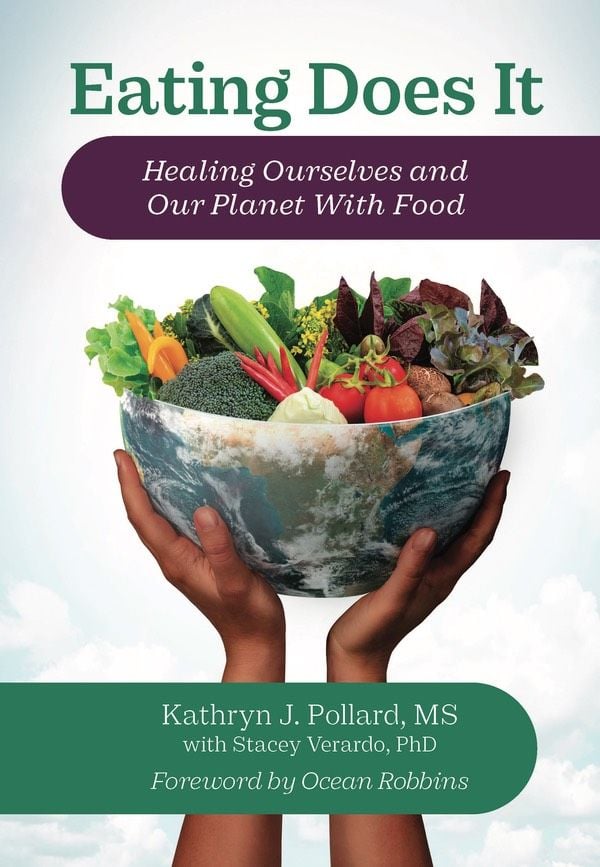As I offer in my upcoming book, the most valuable nutrient in food is also the least respected and oft ignored! So here’s a valuable lesson about my favorite topic – fiber, which you get from plants, whole plants, and nothing but plants. Think of fiber as the plant’s skeletal system instead of having bones. Fiber supports the plant and in turn our health in so many ways, yet we don’t give it much attention because it carries very little caloric value. It doesn’t even count as a nutrient like a vitamin does. But that’s a benefit to us, as we can fill up on foods with fiber and take in relatively few calories.
Eating Lesson #1 – You’ll blow up eating foods with intact fiber before eating too much or gaining weight.

Even better, fiber scrubs your intestines clean as it goes down, acting like the scrubber that cleans your pots and pans. It ushers out debris and protects your colon from decaying food, and your arteries from saturated fat! This wunderkind of food is hidden in your diet, and thus the most underappreciated thing since Rodney Dangerfield who never got any respect. Remember him old people?
Fiber is what protects against colon cancer and diverticulitis. Even better, it increases satiety, that feeling of fullness, and sweeps out toxins as it makes its way through the gut. It sucks stuff up to eliminate, and all the while adds bulk and water. This traveling fiber becomes the yummiest food for the good colonic bacteria living in our intestines, making them happy and supplying them with energy, which is good because these little guys rule our immune system. They are the bouncers of the GI tract and kick out the pathogenic bacteria that make us sick.
Fiber does even more – it sucks up extra cholesterol and hormones that you don’t need, ushering them out and protecting us from trouble like plaque in our arteries, and certain cancers like prostate, breast and ovarian. Think of fiber as soap for our colon.
And all this fiber function from plants is good news for the planet. The more fruits, vegetables, beans and whole grains we get down, the more we crowd out meat and animal foods from the diet, and by eating less meat, the world could prevent several million deaths a year from disease, substantially cut planet-warming greenhouse gas emissions, and save billions of dollars annually in healthcare costs and climate damage, according to a 2015 study – food for thought during this season of unprecedented hurricanes, flooding and heat waves.*
So add those fiber-filled foods into your diet, save the planet, and spare the lives of millions of animals at the same time. Now that’s respect!
* Springmann, M., Mason-D’Croz, D., Robinson, S., Garnett, T., Godfray, H. C. J., Gollin, D., . . . Scarborough, P. Global and regional health effects of future food production under climate change: a modelling study. The Lancet, 387(10031), 1937-1946. doi:10.1016/S0140-6736(15)01156-3

